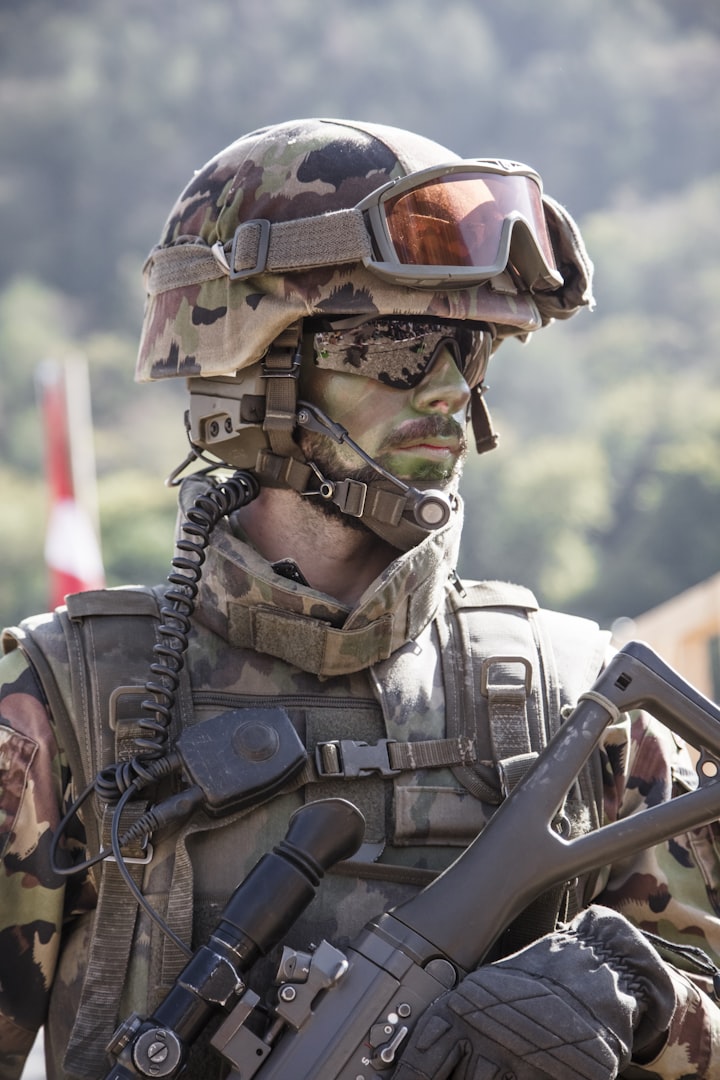Putin's Tacit Approval: Legitimizing the Wagner Group in Ukraine
The Rise of the Wagner Group

Introduction
The conflict in Ukraine has been a source of international concern and tension since its inception in 2014. Russia's involvement in the eastern part of Ukraine, particularly in the Donetsk and Luhansk regions, has been a subject of controversy and contention. One intriguing aspect of Russia's strategy in this conflict has been its apparent legitimization of private military companies (PMCs), particularly the Wagner Group. This essay explores how President Vladimir Putin has seemingly legitimized the Wagner Group and sent new volunteer groups to the front lines in Ukraine.
The Rise of the Wagner Group
The Wagner Group is a Russian private military company that emerged in the shadows of Russia's involvement in conflicts such as Ukraine and Syria. Officially, the Russian government denies any affiliation or support for the group. Still, numerous reports suggest that the Wagner Group has close ties to the Kremlin and operates with at least tacit approval from Russian authorities.
The group, led by former Russian special forces officer Dmitry Utkin, has gained notoriety for its involvement in various conflicts, including Syria, Libya, and Ukraine. Wagner Group's operations in Ukraine have raised significant questions about the extent to which the Russian government is involved in its activities.
Deniability and Plausible Deniability
One of the key reasons for Russia's apparent support of PMCs like the Wagner Group is the principle of plausible deniability. By using PMCs, the Russian government can distance itself from the actions of these groups, allowing it to operate in a gray area of international law. This plausible deniability allows Russia to maintain a facade of non-involvement while still exerting influence and control over the conflict.
In the case of Ukraine, Russia has consistently denied any direct military involvement, despite ample evidence to the contrary. The use of PMCs like the Wagner Group allows Russia to maintain this stance and avoid direct international condemnation.
Legitimizing the Wagner Group
President Vladimir Putin's actions and statements have contributed to the perception that the Wagner Group operates with a degree of legitimacy. While Russia officially denies any connection to the group, Putin's reluctance to condemn its actions and his public comments hint at a different reality.
For example, in a 2019 interview, Putin acknowledged that there are "certain people" in Ukraine who are Russian citizens and "who are dealing with matters related to ensuring their security." While he did not specifically mention the Wagner Group, his comments suggested that he was aware of the activities of Russian citizens in Ukraine and was not opposed to them.
Furthermore, the Russian government has awarded medals and honors to Wagner Group members for their service in Ukraine and other conflict zones. These actions lend an air of official approval to the group and suggest that it operates with at least some degree of legitimacy in the eyes of the Russian state.
Sending New Volunteer Groups
In addition to the Wagner Group, Russia has been accused of sending new volunteer groups to the front lines in Ukraine. These volunteer fighters often come from Russia and other countries in the former Soviet Union and are believed to be motivated by a combination of factors, including ideology, financial incentives, and a desire for adventure.
While these groups are technically separate from the Russian military and government, their actions align with Russia's strategic goals in Ukraine. They have been accused of participating in combat operations, providing support to separatist forces, and contributing to the destabilization of eastern Ukraine.
The Russian government's willingness to turn a blind eye to these volunteer groups and their activities further underscores the perception that Moscow is actively involved in the conflict and is using these groups as instruments of its policy in Ukraine.
The Impact on the Conflict
The involvement of the Wagner Group and other volunteer groups in Ukraine has had a significant impact on the conflict. These groups have contributed to the intensification of fighting, the perpetuation of the conflict, and the suffering of civilians in eastern Ukraine.
Their presence has also made it more challenging to reach a peaceful resolution to the conflict, as their actions often undermine ceasefire agreements and diplomatic efforts. The use of PMCs and volunteer groups allows Russia to maintain a degree of control over the situation in Ukraine while avoiding direct accountability for the ongoing violence.
International Response
The international community has expressed concerns about the involvement of PMCs like the Wagner Group in the conflict in Ukraine. Many Western countries have imposed sanctions on individuals and entities associated with the group, but these measures have had limited impact on its operations.
Efforts to hold Russia accountable for its actions in Ukraine have been complicated by the Kremlin's denials and the use of plausible deniability. While there is strong evidence of Russian involvement, it remains challenging to definitively prove the extent of Moscow's support for the Wagner Group and other actors in the conflict.
Conclusion
President Putin's approach to the conflict in Ukraine, including his apparent legitimization of the Wagner Group and the sending of new volunteer groups to the front lines, reflects a complex and nuanced strategy. By using PMCs and volunteer fighters, Russia can pursue its interests in Ukraine while maintaining a facade of non-involvement.
The impact of these actions has been profound, perpetuating the conflict, undermining diplomatic efforts, and causing suffering for civilians in eastern Ukraine. The international community's response has been limited by the difficulty of proving Russia's direct involvement and the use of plausible deniability.
As long as Russia continues to employ these tactics, the conflict in Ukraine is likely to persist, and a lasting resolution remains elusive. Addressing this issue will require a concerted international effort to hold Russia accountable for its actions and seek a peaceful solution to the ongoing crisis.





Comments (1)
Great work! Fantastic job!